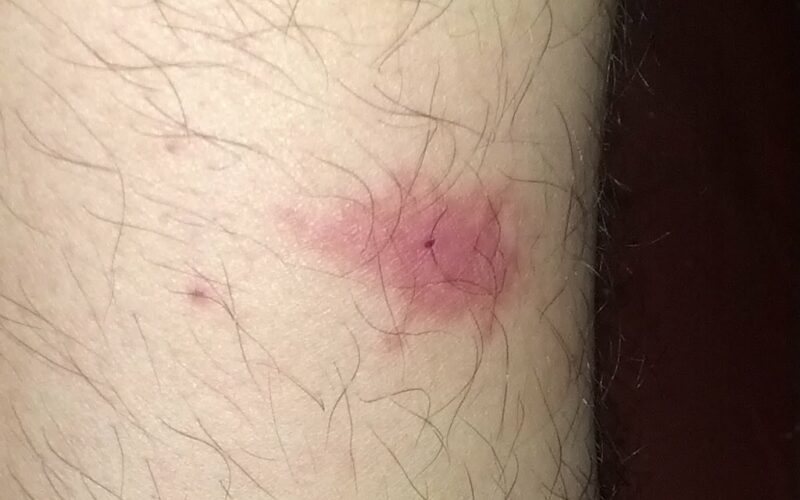Indigestion, also known as dyspepsia, is a common condition that many people experience at some point in their lives. It is characterized by a feeling of discomfort or pain in the stomach or upper abdomen. Indigestion is not a disease in itself, but rather a collection of symptoms that occur together.
Symptoms of Indigestion
The symptoms of indigestion can vary from person to person, but they typically include:
- Feeling full too quickly during a meal or experiencing uncomfortable fullness after a meal. This is often the first sign of indigestion.
- Pain or burning sensation in the upper abdomen. This discomfort can be mild or severe and may come and go.
- Bloating in the stomach area. This can cause the abdomen to feel tight or swollen.
- Nausea or vomiting. While not as common, these symptoms can occur in some people with indigestion.
- An acidic taste in the mouth or a feeling of acid reflux. This is when stomach acid or bile flows back into the esophagus, causing a burning sensation in the chest (heartburn).
- Frequent belching or passing of gas. This is the body’s way of getting rid of excess air in the stomach.
It’s important to note that while these symptoms can be uncomfortable, they are usually not a cause for alarm. However, if indigestion symptoms persist for more than two weeks, or are accompanied by unintentional weight loss, persistent vomiting, difficulty swallowing, or blood in the stool, it’s crucial to seek medical attention as these could be signs of a more serious underlying condition.
Causes of Indigestion
Causes of indigestion can be categorized into three types[1]:
- Organic: Your body is malfunctioning.
- Functional: Your eating habits or lifestyles.
- Medication: Side effects of certain medicines.
Organic causes
Organic causes of indigestion are often linked to stomach acid, a potent substance with a pH ranging from 0.9 to 1.5 (which is a strong acid!). This high acidity is the primary cause of the burning sensation you feel in your stomach during indigestion.
The stomach, being the resilient organ that it is, has a robust lining that protects it from the corrosive effects of stomach acid. However, like any good defense, it can sometimes wear thin. When this happens, the stomach acid can cause irritation and inflammation, leading to discomfort.
Occasionally, stomach acid may escape from the stomach and make its way into the upper part of the small intestine, known as the duodenum. Unlike the stomach, the duodenum doesn’t have the same protective lining, so the acid can cause more damage there.
The acid can also travel upwards from the stomach to the lower part of the esophagus, a condition known as acid reflux. The esophagus, like the duodenum, lacks the necessary defenses to protect against stomach acid.
Acid reflux could be the reason behind other symptoms that accompany indigestion, such as hiccups, reflux, and heartburn. Even if your stomach lining is still intact, you might experience acid reflux and discomfort in your esophagus.
Long-term exposure to stomach acid can lead to ulcer disease, such as stomach and duodenal ulcers. These ulcers can cause a burning pain, similar to the sensation of indigestion.
Ulcer disease could also explain other symptoms that accompany indigestion, such as feeling full quickly, nausea, and bloating.
In addition to excessive stomach acid and stomach ulcers, other conditions that can cause indigestion include:
- Cholecystitis (inflammation of the gallbladder)
- Gastritis (inflammation of the stomach lining)
- Gastric spasms
- Infection with Helicobacter pylori (H. pylori)
- Irritable Bowel Syndrome (IBS)
- Lactose intolerance
- Stomach cancer
Functional causes
Functional dyspepsia surpasses any organic cause in terms of commonality when it comes to indigestion. Some of these causes include:
- Eating too much or too quickly. Overeating can stretch your stomach, making it easier for stomach acid to escape from the top.
- Too much fat in your diets. High-fat foods require more stomach acid and enzymes to digest, which may irritate your tissues.
- Unknown food intolerances. You may have difficulty digesting certain foods.
- Smoking and drinking. These two substances can irritate the lining of your digestive tract. They can cause inflammation.
- Stress and anxiety. Your digestive tract is closely connected to your brain through nerves, and they can influence each other.
Medication causes
Certain medications can cause indigestion, such as:
- Some antibiotics that kills bacteria, including good ones.
- Nonsteroidal anti-inflammatory drugs (NSAIDs), like aspirin, ibuprofen, or naproxen.
Medications and Home Remedies
The approach to treating indigestion is largely dependent on its root cause. For indigestion caused by excessive stomach acid, patients can purchase over-the-counter medications or ask health providers for stronger prescription medications; for indigestion caused by poor eating habits, they can start changing their diet; for indigestion caused by anxiety or stress, psychological therapy may be needed.
There are a variety of over-the-counter and prescription medications available to treat indigestion[2]. These include antacids, H2 blockers, and proton pump inhibitors, all of which can be purchased without a prescription. If indigestion persists for more than two weeks, it’s advisable to consult a doctor. They may prescribe stronger acid-suppressing medications, antibiotics, prokinetics, or psychological medications.
Antacids
Antacids are often the first line of defense recommended by doctors. These over-the-counter medications work by neutralizing stomach acids. Examples of antacids include:
| Ingredients | Brand names |
|---|---|
| Calcium Carbonate | Rolaids, Tums |
| Loperamide | Imodium |
| Simethicone | Maalox, Mylanta |
| Sodium Bicarbonate | Alka-Seltzer |
Antibiotics
In cases of a Helicobacter pylori (H. pylori) infection, antibiotics are prescribed to eliminate the bacteria. Your doctor will prescribe at least two from the following list:
| Ingredients | Brand names |
|---|---|
| Amoxicillin | Amoxil |
| Clarithromycin | Biaxin |
| Metronidazole | Flagyl |
| Tetracycline | Sumycin |
| Tinidazole | Tindamax |
H2 blockers
H2 blockers are another category of medications that reduce the amount of acid produced by the stomach. They provide short-term or on-demand relief for many people with indigestion. H2 blockers can be purchased over the counter or prescribed by a doctor. Examples of H2 blockers include:
| Ingredients | Brand names |
|---|---|
| Cimetidine | Tagamet HB |
| Famotidine | Pepcid AC |
| Nizatidine | Axid AR |
| Ranitidine | Zantac |
Proton pump inhibitors (PPIs)
Proton pump inhibitors (PPIs) are particularly effective in treating indigestion accompanied by heartburn. Some PPIs can be bought over the counter, while others require a prescription. Examples of PPIs include:
| Ingredients | Brand names |
|---|---|
| Esomeprazole | Nexium |
| Lansoprazole | Prevacid |
| Omeprazole | Pilosec,Zegerid |
| Pantoprazole | Protonix (Rx) |
| Rabeprazole | AcipHex (Rx) |
Prokinetics
Prokinetics are prescription medications that aid in faster stomach emptying. Examples of prescription prokinetics include:
| Ingredients | Brand names |
|---|---|
| Bethanechol | Urecholine |
| Metoclopramide | Reglan |
Changing dietary habits
Your doctor might suggest steering clear of specific foods and beverages that could trigger indigestion or exacerbate your symptoms, such as:
- Alcoholic beverages.
- Carbonated or fizzy drinks.
- Foods or drinks containing caffeine.
- Foods high in acidity, like tomatoes and oranges.
- Spicy, fatty, or greasy foods.
How to Prevent indigestion?
In addition to changing your diet, you can also help prevent indigestion by changing your lifestyle, such as:
- Avoid exercise immediately after eating (walking is okay).
- Eat slowly and chewing thoroughly.
- Lose weight if necessary.
- Avoid late-night snacking.
- Avoid large amounts of nonsteroidal anti-inflammatory drugs.
- Quit smoking.
- Make an effort to reduce stress and anxiety in your life.
- Wait 2 to 3 hours after eating before lying down
Disclosure: We are an Amazon Associate. Some links on this website are affiliate links, which means we may earn a commission or receive a referral fee when you sign up or make a purchase through those links.
























Leave a Reply